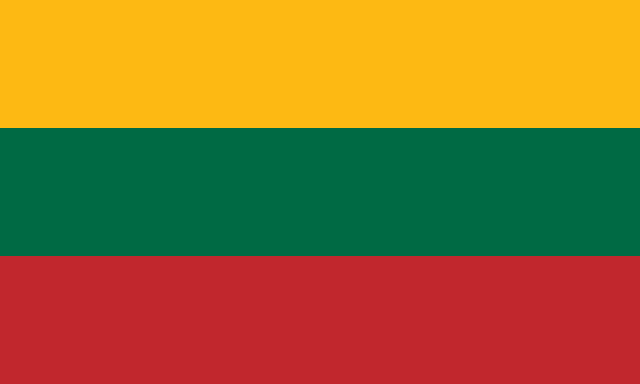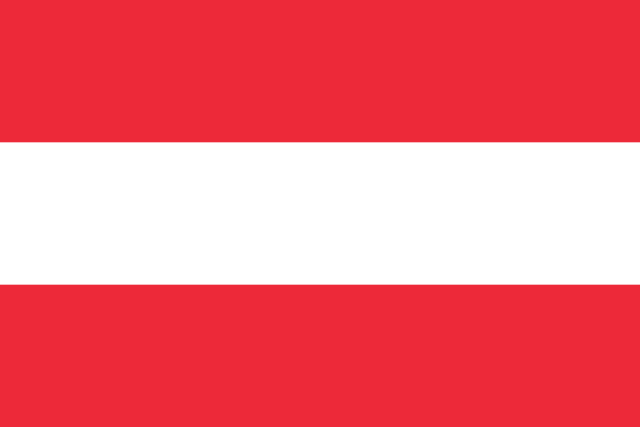According to the EU’s Digital Decade Country Report 2023, Luxembourg is excelling in multiple key areas. Luxembourg ranks second in the EU for the number of ICT specialists in total employment and seventh for the percentage of the population with basic digital skills, at 64%, well above the EU average of 54%. This demonstrates the country’s strong focus on developing a digitally skilled workforce. The country is a top performer in digital infrastructure, with 93% coverage for both Fixed Very High-Capacity Networks (VHCN) and 5G, compared to the EU averages of 73% and 81%. This positions Luxembourg as a leader in providing high-speed connectivity. Luxembourg ranks highly in digital public services, scoring 95 out of 100 for services to citizens and 97 for services to businesses, reflecting its success in making public services more accessible and efficient through digital means. While there is room for improvement in cloud service adoption and e-commerce, Luxembourg excels in electronic information sharing, social media usage, big data analysis, and AI implementation among businesses. Initiatives like the European Space Resources Innovation Centre’s start-up Support Programme (ESRIC SSP) support these efforts.
Internet governance
Luxembourg, a small yet influential country in the heart of Europe, has developed a robust framework for internet governance, reflecting its commitment to fostering a secure, innovative, and inclusive digital environment. Here are some unique aspects of Luxembourg’s approach to internet governance:
Strategic Vision and Policy Framework
Luxembourg has a forward-thinking digital strategy that integrates internet governance within its broader economic and social development plans. The ‘Digital Luxembourg’ initiative is a cornerstone, emphasising innovation, cybersecurity, and digital inclusion. This holistic approach ensures that internet governance is not only about regulation but also about enabling digital transformation across various sectors.
Data Privacy and Security
Luxembourg places a high priority on data privacy and security, aligning with stringent European Union regulations like the General Data Protection Regulation (GDPR). The country hosts numerous data centers, including those of international financial institutions, due to its reputation for robust data protection laws and secure infrastructure. Luxembourg’s regulatory framework is designed to protect users’ data rights while fostering trust in digital services.
Multistakeholder Approach
Luxembourg actively promotes a multistakeholder model of internet governance, engaging various actors such as government bodies, private sector companies, civil society, and academic institutions. This inclusive approach ensures that diverse perspectives are considered in the decision-making process, fostering a more balanced and representative internet governance structure.
Innovation and Technology Hub
Luxembourg is recognised as an innovation and technology hub, attracting startups and tech companies from around the world. The government supports digital innovation through various funding schemes, incubators, and accelerators. This focus on innovation is reflected in its internet governance policies, which aim to create a conducive environment for technological advancements while maintaining regulatory oversight.
International Collaboration
Luxembourg actively participates in international forums and collaborates with other countries and organisations on internet governance issues. It is a member of several international bodies, including the Internet Governance Forum (IGF) and the European Dialogue on Internet Governance (EuroDIG). Through these platforms, Luxembourg contributes to shaping global internet policies and standards.
Digital Inclusion and Literacy
Luxembourg emphasises digital inclusion and literacy, ensuring that all citizens have access to digital technologies and the skills needed to use them effectively. Initiatives such as “Digital Inclusion Luxembourg” focus on bridging the digital divide, providing training and resources to underserved communities. This commitment to digital inclusion is a key aspect of Luxembourg’s internet governance strategy.
Digital strategies
Luxembourg’s digital strategies are a comprehensive and evolving framework designed to enhance the country’s digital infrastructure, skills, and innovation capabilities. Luxembourg’s digital strategies represent a well-rounded approach to embracing digital transformation, focusing on infrastructure, skills, innovation, and regulatory excellence. For further details, you can explore the official Digital Luxembourg website and the Government of Luxembourg’s Digital Decade dossier.
Digital Luxembourg Initiative
Launched in 2014, the Digital Luxembourg initiative aims to strengthen the country’s digitalization through three main missions: enabling new projects, supporting existing initiatives, and disseminating information on tech developments. The initiative focuses on developing digital skills, improving the digital ecosystem, enhancing infrastructure, and formulating robust data policies. This collaboration-based approach involves over 60 stakeholders from the public and private sectors.
Digital Luxembourg transitioned to ‘Innovative Initiatives‘ to reflect a shift in priorities and to adapt to Luxembourg’s changing needs. This platform focuses on digital skills, data policy, connectivity, and new technologies. It supports public-private partnerships and government initiatives aimed at driving digital progress and positive transformation.
Digital Decade Strategic Roadmap
As part of the EU’s broader digital decade strategy, Luxembourg is preparing its national strategic roadmap until 2030. This roadmap involves extensive stakeholder consultation to ensure that both private and public sector needs are met. The strategy emphasises key areas such as digital infrastructure, cybersecurity, and digital skills development to maintain and enhance the country’s competitiveness in the digital economy.
5G Strategy and Digital Skills Development
Luxembourg’s 5G strategy and initiatives to develop digital skills are integral to its digital transformation. The country has launched various projects to enhance digital literacy and re-skill its workforce, ensuring that citizens and businesses can leverage emerging technologies such as AI, robotics, and web development. These efforts are crucial for maintaining a competitive edge in the fast-evolving digital landscape.
Luxembourg’s Digital Governance Strategy
The country has prioritised the digitalization of its public sector through the ‘Stratégie de Gouvernance Électronique 2021-2025,’ a comprehensive plan by the Ministry of Digitalization. This strategy focuses on enhancing the quality and accessibility of online public services in Luxembourg. It aims to create an inclusive, transparent, and efficient digital government that meets the needs of all citizens and businesses. By fostering a data-driven economy and enhancing public trust in digital services, the strategy seeks to ensure that Luxembourg’s digital governance remains robust and forward-looking.
Cybersecurity
The cybersecurity landscape in Luxembourg is characterised by a robust and comprehensive approach, reflecting the country’s commitment to maintaining a secure digital environment. This commitment is evident through various initiatives, regulatory frameworks, and strategic collaborations. Here are the key elements of Luxembourg’s cybersecurity landscape:
Luxembourg has established several key initiatives and strategies to enhance its cybersecurity posture. The Cybersecurity Competence Center Luxembourg (C3) serves as a national hub for cybersecurity expertise, offering training, consulting, and certification services to businesses and government entities. Additionally, the National Cybersecurity Strategy (2021-2025) outlines the country’s approach to addressing emerging cyber threats, promoting a secure digital economy, and ensuring the protection of critical infrastructures.
Luxembourg has implemented stringent regulatory measures to safeguard its digital landscape. The National Commission for Data Protection (CNPD) oversees the enforcement of data protection laws, including compliance with the General Data Protection Regulation (GDPR). Additionally, the country adheres to the European Union’s Network and Information Systems (NIS) Directive, which mandates rigorous cybersecurity requirements for operators of essential services and digital service providers.
Collaboration between the public and private sectors is a cornerstone of Luxembourg’s cybersecurity strategy. The Luxembourg House of Cybersecurity facilitates cooperation among various stakeholders, including businesses, government agencies, and academic institutions. This collaborative approach helps to share threat intelligence, best practices, and resources to enhance collective cybersecurity resilience.
Luxembourg places a strong emphasis on developing cybersecurity skills and awareness. The Luxembourg Institute of Science and Technology (LIST) and the University of Luxembourg offer specialised programs and research opportunities in cybersecurity. Moreover, initiatives like the Cybersecurity Week Luxembourg provide platforms for industry professionals to network, learn, and stay updated on the latest cybersecurity trends and challenges.
Luxembourg actively participates in international cybersecurity efforts, aligning its policies with global standards and frameworks. The country is a member of various international organisations, including the European Union Agency for Cybersecurity (ENISA) and the North Atlantic Treaty Organization (NATO) Cooperative Cyber Defence Centre of Excellence (CCDCOE). These affiliations enable Luxembourg to contribute to and benefit from collective cybersecurity initiatives and knowledge-sharing at the international level.
AI strategies and policies
Luxembourg’s AI landscape is characterized by strong government support, a vibrant research community, and a commitment to ethical AI development.
Luxembourg has outlined a national AI strategy aimed at leveraging AI to drive economic growth and improve public services. This strategy focuses on fostering innovation, ensuring ethical AI development, and integrating AI across various sectors. Under the Digital Luxembourg initiative, AI is a critical focus area. This initiative promotes AI adoption through public-private partnerships, funding for research projects, and support for startups specializing in AI technologies.
Research and development play a pivotal role in Luxembourg’s AI landscape. The Luxembourg Institute of Science and Technology (LIST) collaborates with industry partners to develop AI solutions that address real-world challenges, particularly in sectors like finance, healthcare, and logistics. The University of Luxembourg, through its Interdisciplinary Centre for Security, Reliability, and Trust (SnT), conducts cutting-edge research in AI, cybersecurity, and data science, offering specialized programs and fostering innovation.
Support for startups and innovation is another cornerstone of Luxembourg’s AI ecosystem. Luxinnovation, the national innovation agency, supports AI startups through funding, mentorship, and networking opportunities, helping new ventures navigate the regulatory landscape and connect with potential investors and partners. The House of Startups provides resources and support for AI startups, fostering an environment conducive to innovation and growth, offering co-working spaces, accelerator programs, and access to a network of industry experts.
The country actively participates in EU-wide AI initiatives, contributing to the development of a cohesive European AI strategy and engaging in Horizon Europe projects and collaborations with other member states on AI research and innovation. Global partnerships with tech leaders and research institutions ensure that Luxembourg’s AI ecosystem benefits from the latest developments and best practices in the field.










